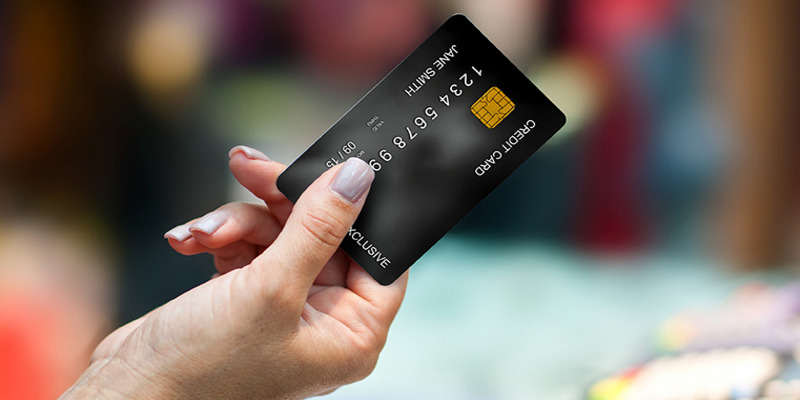Non-Resident’s Guide to Opening a US Bank Account and Credit Card Online
Jan 17, 2024 By Triston Martin
Starting a US financial institution account without living there is feasible. However, it's not always easy. Some banks permit non-residents to open debts, but not all. This method lets you pay bills, receive direct payments, and use ATMs without foreign bank conversion fees. Non-residents face the obstacle that account opening is frequently conducted in person, even at the few banks that accept them. This prerequisite may pose a substantial impediment to individuals located outside the United States. As a result, numerous non-citizens are compelled to carry cash when most of the world is cashless or are subject to exorbitant fees levied by international banks.
US bank accounts can be expensive, depending on the bank. Because traditional banks make most of their money from loans, thus, opening an online credit card processing account is usually free. However, the account may have small monthly or transfer fees. Some financial institutions, especially non-lenders, may charge an application fee and monthly fees to control operating costs. The cost of opening and maintaining a US bank account depends on the account type and bank.
Those unable to travel to the United States must utilize online banking solutions. They provide the opportunity to benefit from a United States bank online credit card account without being physically present. This option is highly advantageous in a global landscape where digital financial management is gaining prominence.
Documents Needed For Opening

Non-residents must submit paperwork to open a US bank account. A valid passport is essential for identification. Some banks require a driver's license or state ID. Proof of residence is also required. The name and address on this document should match your passport.
Your most recent (within three months) utility bill, bank statement, driver's license, lease or mortgage paperwork, property tax receipt, proof of enrollment at an accredited college or university, proof of insurance, voter registration online credit card, or other legitimate government document will do. After applying, more paperwork is needed. Non-US citizens must submit a W-8 form for tax purposes. W-9 forms are required for Americans. Without a Social protection quantity, you need an ITIN from the IRS.
Later on, a letter confirming your employment, a duplicate of your tax returns from the remaining year, a financial institution statement showing your payment, an unemployment benefits statement, or a pension announcement can show your profits. Since regulations change, always check the latest version. The US online banking industry serves over 97% of the population and is revising its policies as of 2023 to account for economic and regulatory changes. Having the paperwork ready speeds up the process.
Advantages of a US Bank Account for Non-Residents
A financial institution account within the US has several benefits, particularly if you're a US bank. Bills provide many benefits to non-residents. First, it simplifies bill payments and direct payments. ATM use avoids currency conversion fees. Opening an online credit card processing account like this lets you build US credit, which can help you in the future.
The US dollar's stability is a major benefit. As the world's reserve currency, it protects against market volatility. This applies especially to hyperinflation and currency volatility countries. Transactions in US dollars save money. Freelancers, digital nomads, and multinationals benefit greatly. Opening a US dollar account for foreign money is safe and efficient.
Steps to Open a US Bank Account Online for Non-Residents with Bank
Opening an online account with the bank is easy for non-residents of 180+ countries. A few simple steps are involved:
- Gathering Necessary Documents: Start by preparing all the required personal documents for your application, which may include your identity card, salary slip, and so on.
- Application via Bank App: Download the designated Bank app and complete the application form.
- Await Account Approval: Once your application is submitted, the bank will review it. They will inform you promptly upon approval.
Bank's service is tailored for non-residents who wish to benefit from a U.S. bank account without being a resident. This offers an excellent opportunity for global citizens to access U.S. banking services. Start your application today to take advantage of what a U.S. bank account offers!
Alternatives Banking Options for Immigrants

Banking Globally
US immigrants who struggle to open a local bank account may benefit from global banking. The US and other nations have many banks. One major benefit of dual presence is this. Create an account from home and use it easily in the US. This method simplifies immigrant money management by combining two financial systems and cultures. In 2021, massive banks like HSBC and Citibank noticed a 30% increase in cross-border account openings, reflecting immigrants' developing use of world banking.
Mutual Banking
An additional pragmatic approach entails the establishment of a correspondent banking relationship. This occurs when a domestic bank in your country partners with a bank based in the United States. By this affiliation, these financial institutions can aid you in establishing a United States account. This approach is gaining traction among the immigrant population. About 15% of non-resident account openings in the United States were facilitated by correspondent banking partnerships in 2020. These alliances are prevalent in nations that maintain substantial trade relations with the United States, including Canada, Mexico, and India.
How Non-citizens Can Send US Money Abroad
American citizens sending money abroad have several options besides banks. BOSS Revolution easily sends money to France, Bangladesh, Brazil, and Colombia. Depending on your location, you can choose cash pick-up, home delivery, mobile wallet, or bank account direct deposit.
Account creation is easy with BOSS Revolution. We need your full name, email, physical address, and phone number. Also, you need the receiver's full name as it appears on their ID or bank statement. Due to its simplicity, you can open an account without providing personal information like your residency status, SSN, or ITIN.
Sending money abroad has become much easier in recent years. The World Bank reported $540 billion in remittance flows to low- and middle-income countries in 2020, demonstrating their growing dependence on these services. Remittances from immigrants to the US exceeded $68 billion in 2019. People and communities worldwide benefit from instant money transfers to Europe, Asia, and Latin America.





